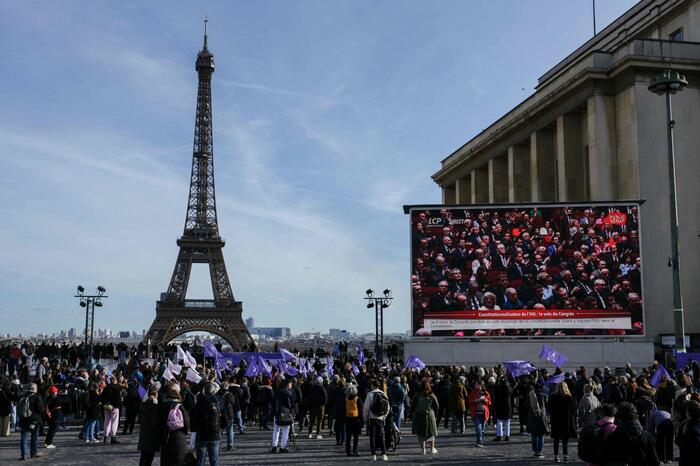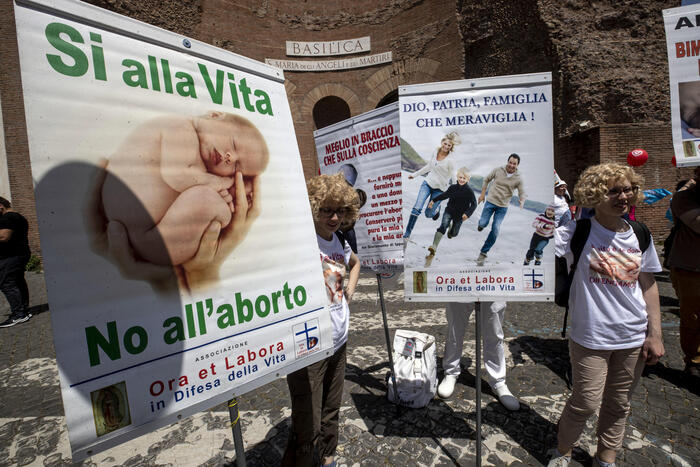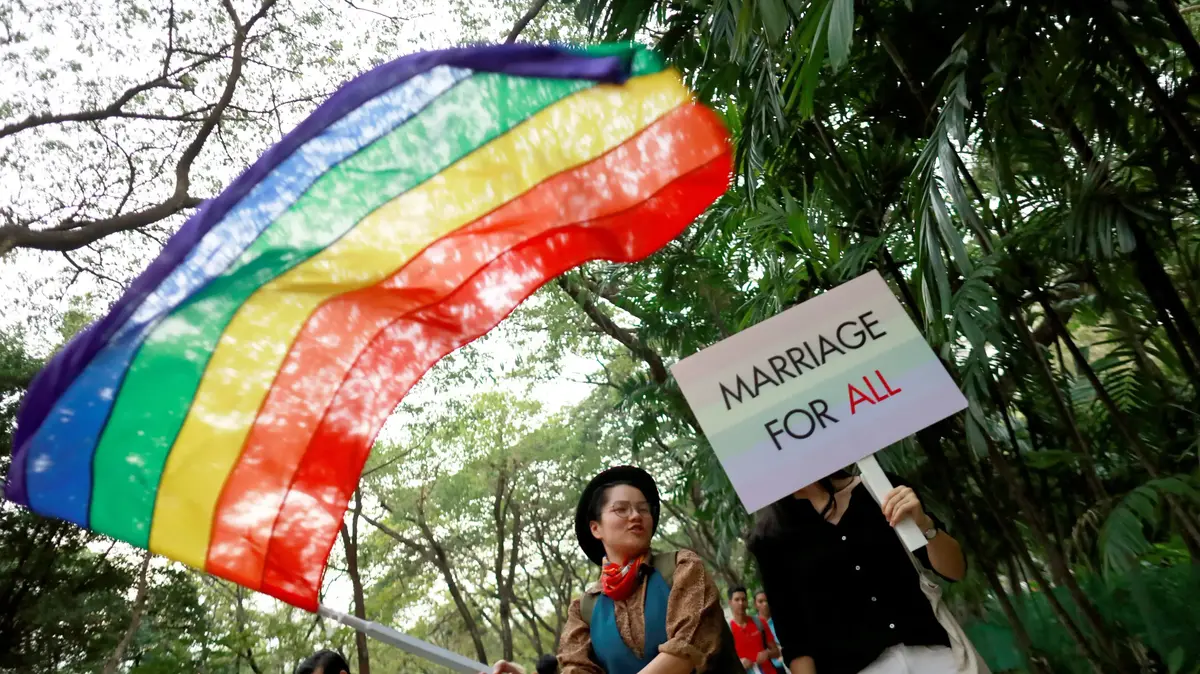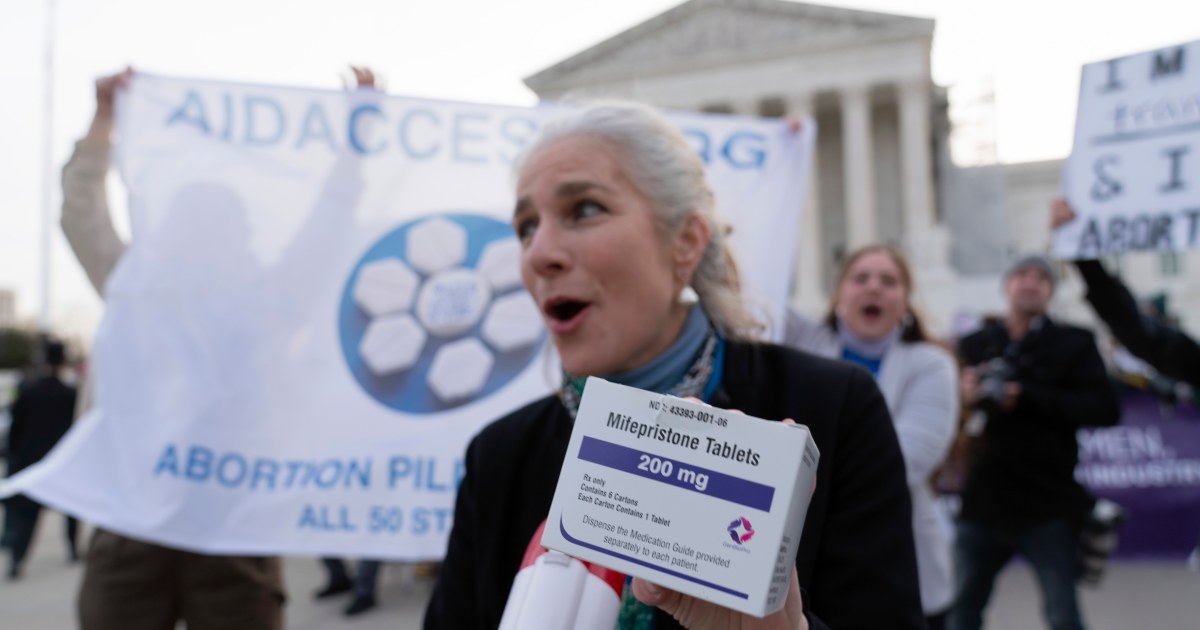Amendments to the US Constitution are like movie stars: their popularity comes and goes.
For some, like the Second, which guarantees "the right to have and bear arms", fashions do not go out.
Others have their moments.
This has been, without a doubt, the week of the Fourteenth, invoked in two historic decisions of the Supreme Court: the one that on Thursday agreed with two citizens of the State of New York who wanted to carry their pistols in public without prior justification and the one that on Friday struck down
Roe v. Wade
, which in 1973 gave constitutional status to access to abortion “free of State interference”.
The ruling undoes precisely that, by returning to the States the power to legislate on the subject.
It is estimated that 26 out of 50 are willing to break a half-century precedent.
Some have already done it;
others are expected in the coming days or weeks.
More information
The Supreme Court strikes down the right to abortion in the United States
Roe
's argument was built on that amendment, from which, among other things, the protection of the right to privacy is derived and which was ratified in 1868 with the Civil War still recent
.
That reasoning was "troubled from the beginning," writes Judge Samuel Alito, drafter of the majority opinion of six against three, in one of the sentences of the 213 pages of Friday's sentence that has made the most fortune.
In the protection of privacy, the
Obergefell v. Hodges
(2015) rulings were also justified, which legalized same-sex marriage,
Lawrence v. Texas
(2003), which ended the prohibition of same-sex relationships (2003) and
Griswold v .
Connecticut
(1965), which allowed married couples to use contraception.
The reference to these three processes is not a whim: they are all cases cited by Judge Clarence Thomas, who voted with the majority and is one of the most conservative members of the most conservative court that the United States has had since the 1930s.
In his concurring opinion, he expressly called for review of those decisions: "We have a duty to correct the error established in those precedents."
Those words provoked a reaction from President Joe Biden (because they threaten "other rights we take for granted") and Jim Obergefell, the plaintiff in the case that legalized same-sex marriage ("Thomas just painted a bull's-eye on privacy" , told the
Cincinnatti Enquirer)
and set off alarms on Friday within the LGTBI community and among the three liberal magistrates who opposed the ruling.
In his dissenting opinion it can be read that "no one should be sure that this majority has finished its work", in reference to the steps, certainly unpredictable, that they may take later.
Basically, they consider, these three sentences are directly related to each other.
“The right to terminate a pregnancy,” write Sonia Sotomayor, Elena Kagan, and Stephen Breyer, “stemmed directly from the right to purchase and use contraception.
In turn, those rights have led, more recently, to the recognition of same-sex intimacy and marriage.”
Either the majority opinion is written from hypocrisy, the justices continue, or additional constitutional rights "are under threat."
“One of two”, they add.
The debate within the court is served, as evidenced by the fact that the substantial difference between the draft of the sentence that was leaked at the beginning of May and the final text known this Friday is in a justification by Alito in which he underlines that the abortion ruling does not jeopardize those other precedents.
(And in law, it is well known that an unsolicited excuse often hides an open accusation.)
“I absolutely believe that same-sex marriage, access to contraceptives and the right to consensual sexual relations are threatened with this Supreme Court,” Paul Collins, a professor of law at the University of Massachusetts and author of three books on the progressive politicization of the judicial body.
“While the majority indicated that the
Dobbs decision [vs. Women's Health Organization,
which is the full name of Friday's ruling] only pertained to abortion, it can easily be interpreted as nullifying almost any right not specifically outlined in the constitution. and not deeply rooted in the nation's history and traditions.
And I'm afraid none of those three rights are."
Toni Codinas, a 41-year-old director of corporate strategy based in Washington, is also wary.
“I see real fear in the LGBTI community.
It gives the impression that a shower of judicial blows is coming”.
Codinas married "as soon as possible" with her long-term partner, Donald Gatlin.
"It is worrying to think of a future in which our rights may be undermined in States that decide not to recognize same-sex marriage," she explains.
“I only hope that these real threats mobilize the Democratic vote in the legislative elections next November.
And that if a sufficient majority is obtained, that action be taken to codify those rights.
[President Barack] Obama had it and didn't, probably because he thought abortion was out of the question.
He was wrong.
Alexis McGill Johnson, CEO of Planned Parenthood, at the head of the Pride in New York demonstration, held this Sunday. BRENDAN MCDERMID (REUTERS)
The 1973 decision, carried by
Roe v. Wade
with a 7-2 majority, was based on the intimacy that attends a woman who decides to terminate a pregnancy.
And that made it controversial from the very day Judge Harry Blackmun, who had been appointed by a Republican president (in his case, Richard Nixon), as well as four others who voted in favor, signed the ruling.
This is how the liberal magistrate Ruth Bader Ginsburg considered it, the closest thing to a pop star of the judiciary that this country has produced, in a text written when she was not yet a member of the Supreme Court.
Her death in September 2020 allowed Donald Trump to appoint Amy Coney Barrett, his third judge to the high court, in a rush, which unbalanced her composition towards a conservative supermajority of six against three.
“If they had clung to the equality clause of the Fourteenth Amendment, instead of the privacy clause,” Collins argues, “the idea would have prevailed that denying reproductive freedom to a woman is a form of gender discrimination.
And I think it would have been more difficult for the Supreme majority to knock down
Roe."
For that it is already too late.
“We did not want to see it while it was happening, but the conservative movement in this country has strategically surpassed us,” lamented the audiovisual producer Andrea Fuller, one of the thousands of protesters who gathered in front of the Supreme Court headquarters on Friday night. Washington to protest the ruling.
Not by chance, in the protests that took place that day in 568 cities across the country, there were many posters and symbols typical of the movement in defense of LGTBI rights, in anticipation of what might come.
And this Sunday in New York, they invited the representatives of Planned Parenthood, an organization dedicated to reproductive health with clinics in 40 cities, to lead, with the outstanding presence of its CEO, Alexis McGill Johnson, the Pride march,
50% off
Exclusive content for subscribers
read without limits
subscribe
I'm already a subscriber

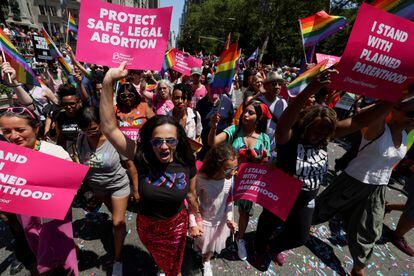

/cloudfront-eu-central-1.images.arcpublishing.com/prisa/JKNMV5QC6BOTHMYCTVK4JK4J7I.jpg)
